A fact little recognized among many students of World War II history is that most major combatant nations used infantry rifles and cartridges designed in the nineteenth century.

They may have been updated or modernized, but essentially all except the.30 U.S. (1906) dated back 40 or even 50 years prior to hostilities starting in 1939 – 1937 for the Japanese and 1941 for the U.S. Even the .303 British started out loaded with black powder.
The subject cartridges here date from 1891 (6.5x52mm Italian, sometimes referred to as “Carcano”) and 1897 (6.5x50mm Japanese, often referred to as “Arisaka”). Introductory rifles in the same order were the Model 1891 Carcano that was kept in service in several rifle and carbine variations after 1945, and the Type 30 Arisaka was supplanted by the Type 38 rifle and carbine in 1905. Interestingly, after Japan surrendered in 1945 its Type 38 6.5mm rifles and carbines were given to Republic of South Korea troops. Those were Republic of Korea soldiers’ rifles when North Korea attacked in June 1950.
(In 1965 I was privileged to spend the summer in Verona, Italy. Almost every day I walked past the North Atlantic Treaty Organization (NATO) headquarters where Italian soldiers guarded the entrance with either Model 91 or Model 38 bolt-action carbines with folding bayonets.)
The casual reader might suppose that the two 6.5mm rounds were similar; differing only 2 millimeters in length. Nothing could be further from fact. Their cartridge cases were radically different and used different bullet sizes. The rifles were also very different in design.
The Japanese chose a semi-rimmed case head for their 6.5s. It measured .455 inch in diameter just ahead of the rim, which was .045-inch thick and .471-inch wide. The Italians adopted a 6.5mm rimless case that measured .445 inch in diameter just ahead of the extractor groove. Both cases were bottleneck in shape.
Esta historia es de la edición Special Edition Fall 2019 de Rifle.
Comience su prueba gratuita de Magzter GOLD de 7 días para acceder a miles de historias premium seleccionadas y a más de 9,000 revistas y periódicos.
Ya eres suscriptor ? Conectar
Esta historia es de la edición Special Edition Fall 2019 de Rifle.
Comience su prueba gratuita de Magzter GOLD de 7 días para acceder a miles de historias premium seleccionadas y a más de 9,000 revistas y periódicos.
Ya eres suscriptor? Conectar
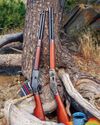
CIMARRON .32-20 Short Rifle & Carbine
In the heyday of Winchester Repeating Arms Company lever guns, it offered muskets, standard rifles, short rifles and saddle ring carbines.
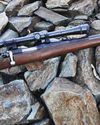
Remington's Model 722 and .222 Cartridge
It's easy enough to define what a varmint is, those pesky critters that tear up pastures, flower beds and all kinds of expensive crops people need for various reasons - most importantly, to make a living and/or something with which to feed themselves.

Coyote Bullets
What is Best for You?
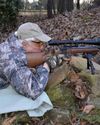
Remington's 5mm Rimfire Magnum
Shooting a Classic
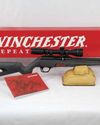
Winchester's New Wildcat
The Ultralight Rimfire Varmint Rifle
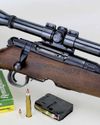
.223 Remington from .30-30 Winchester?
Multitasking for Varmints

LOADS FOR A .22 TCM
The .22 TCM first appeared commercially in 2012, chambered in a Rock Island Armory 1911-style handgun.
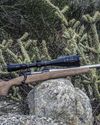
Everybody Loves Velocity
The 4,500-fps WSSM Project
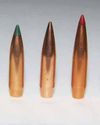
A BOLT-ACTION FRANCHI 224 VALKYRIE
Testing New Loads
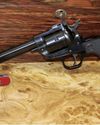
.22 Winchester Magnum Rimfire
Shooting Revolvers